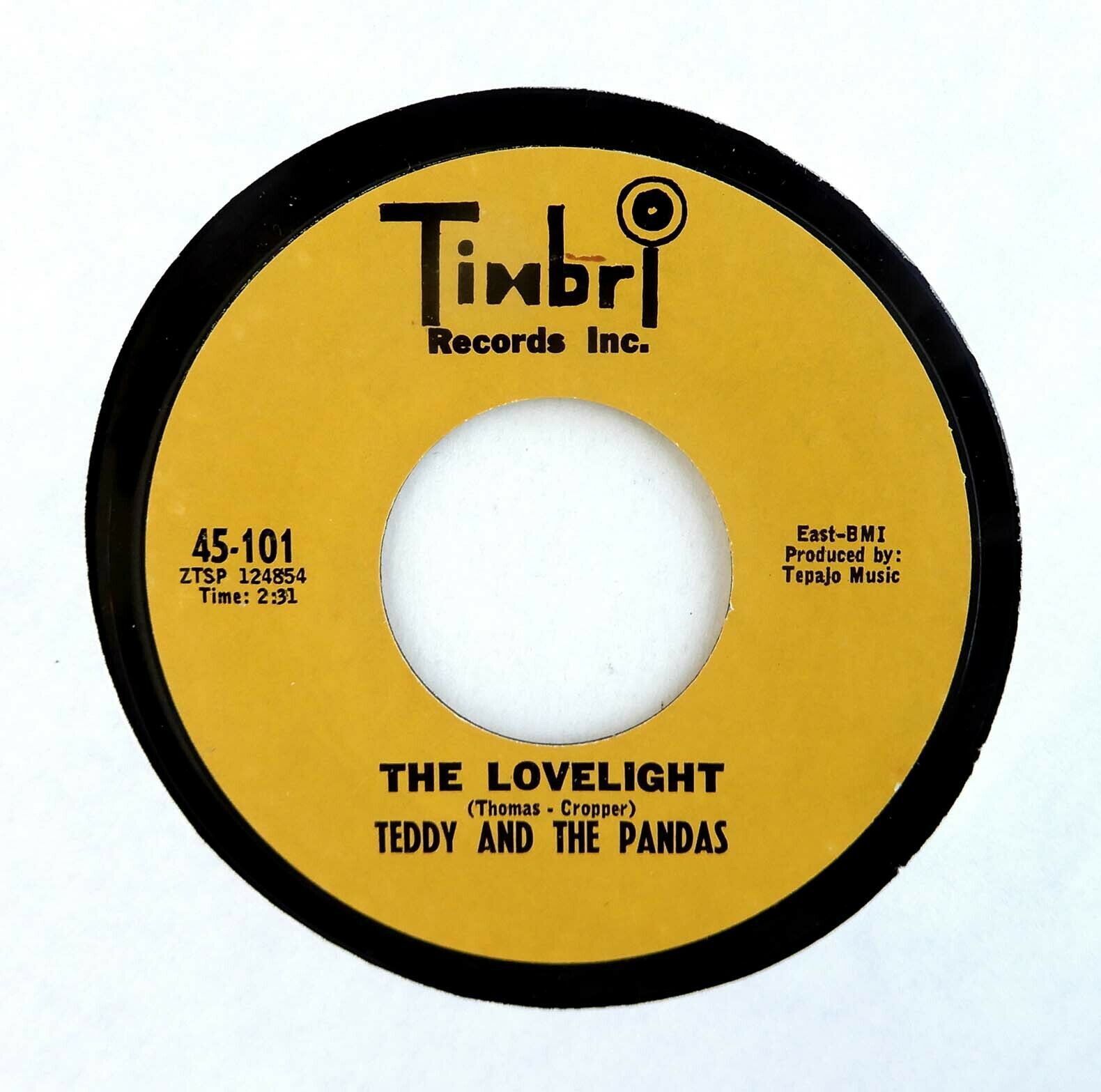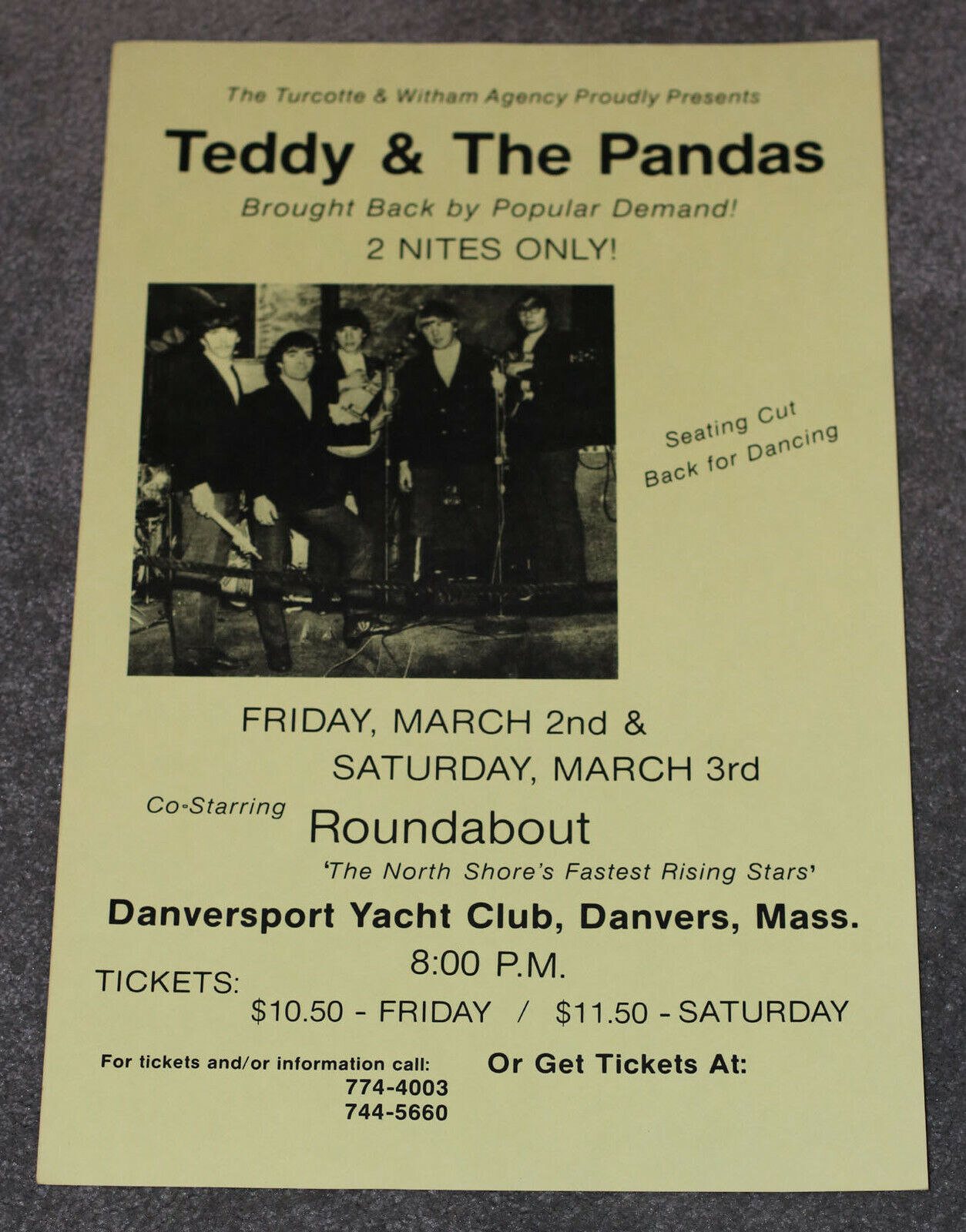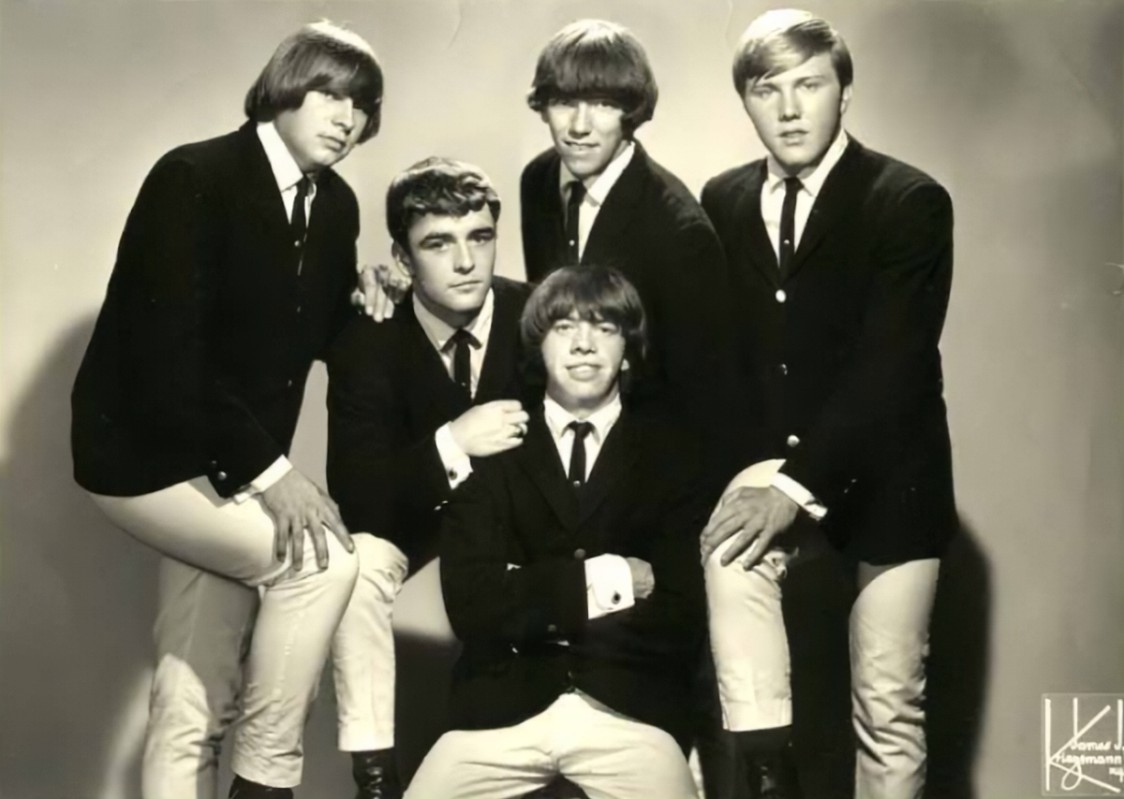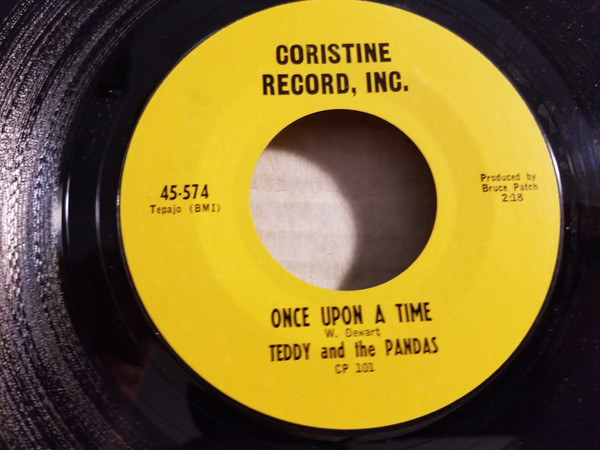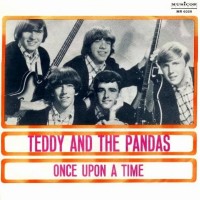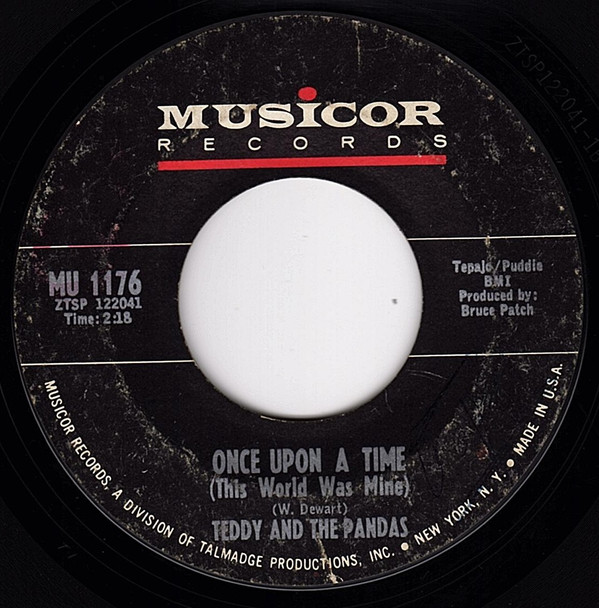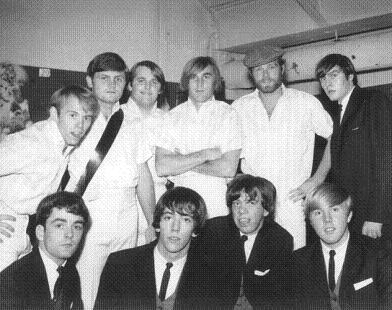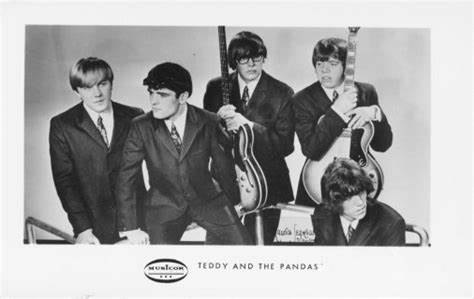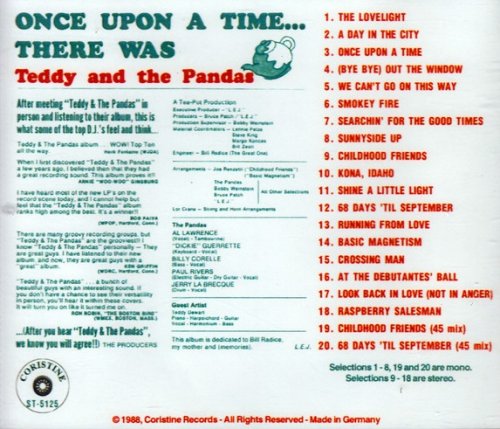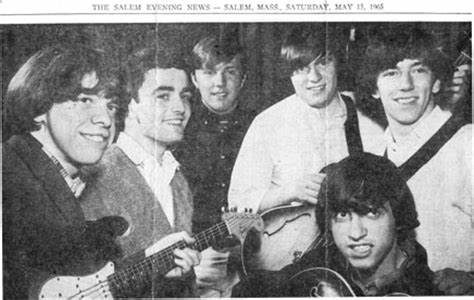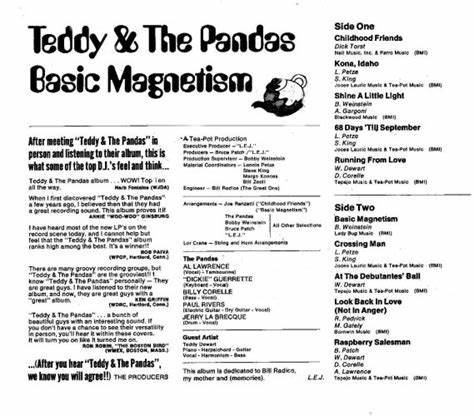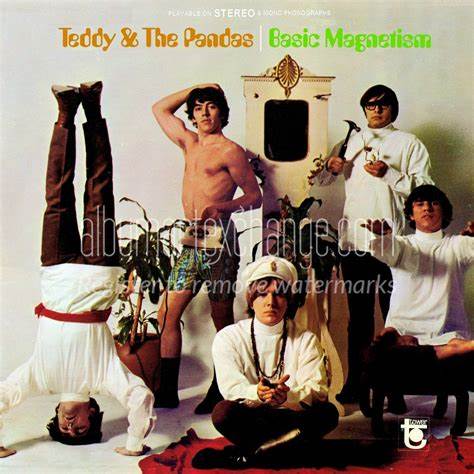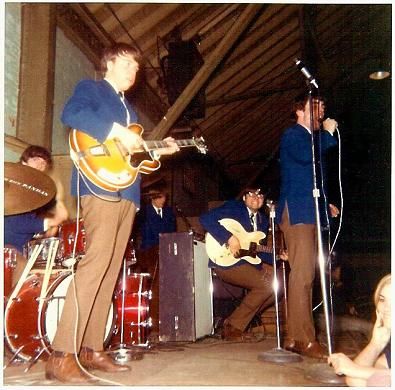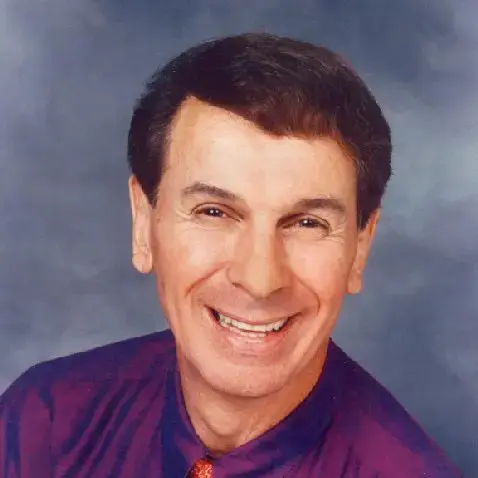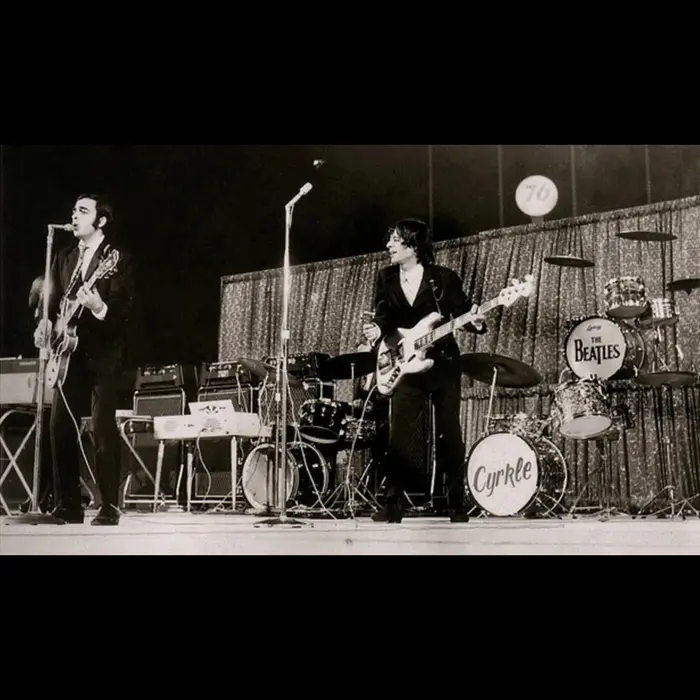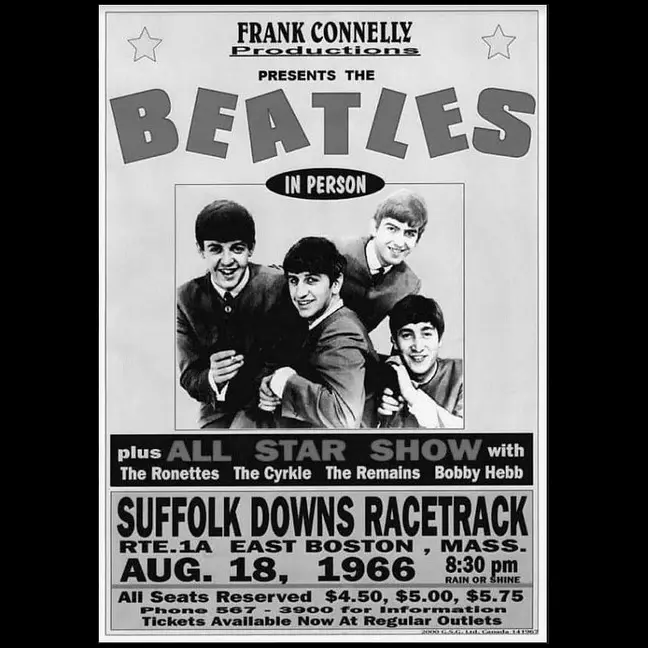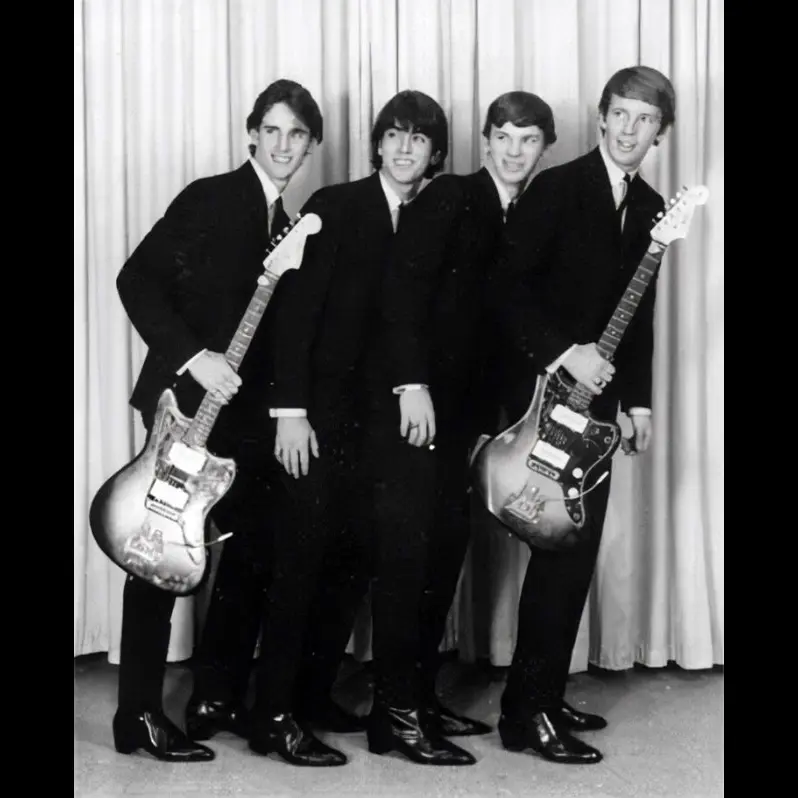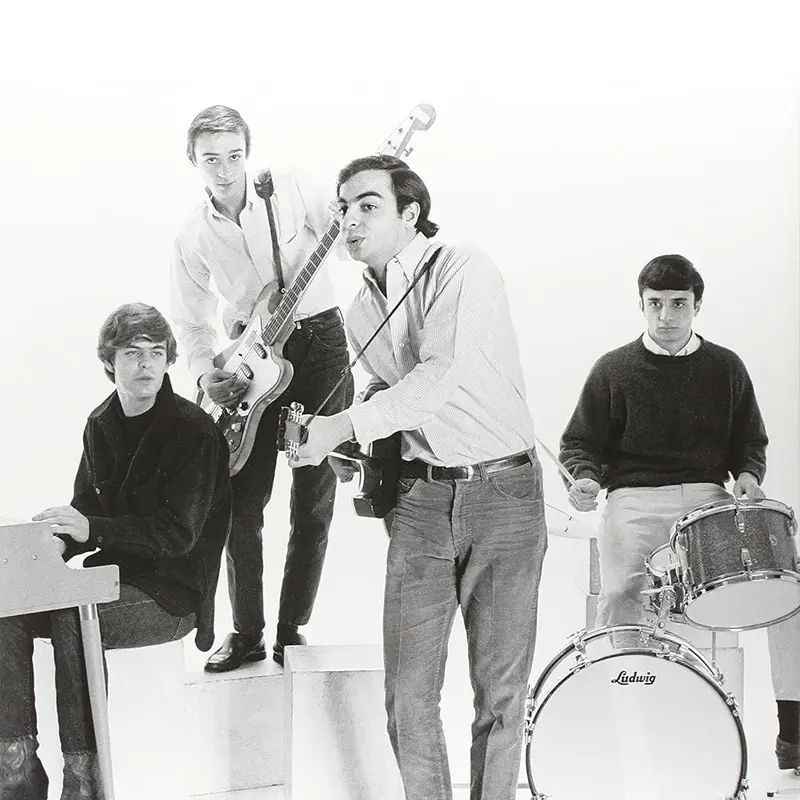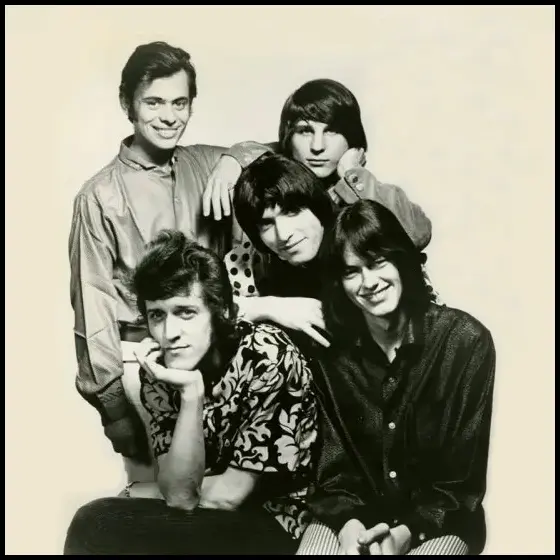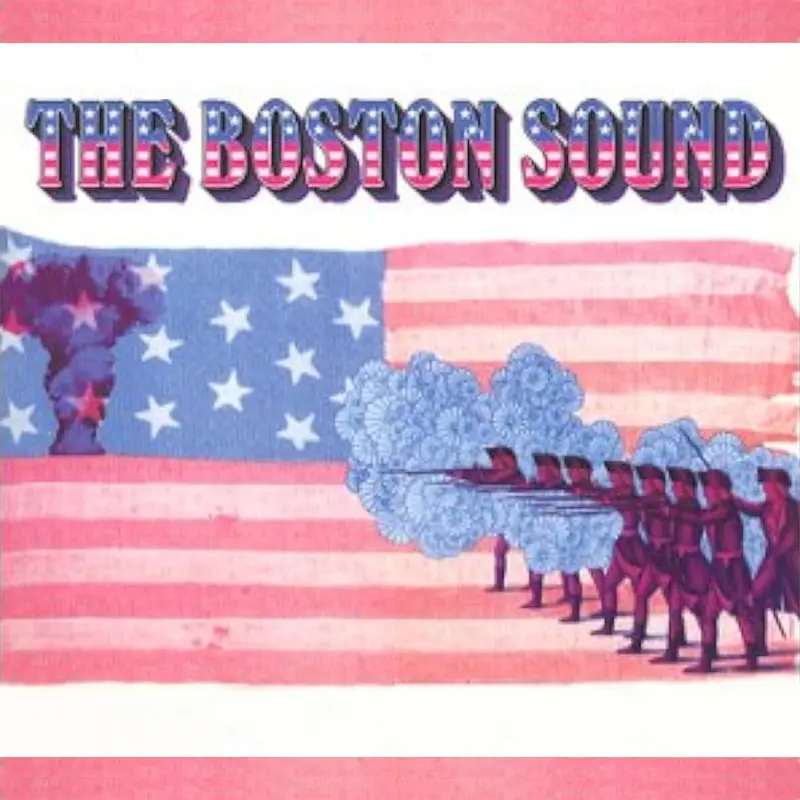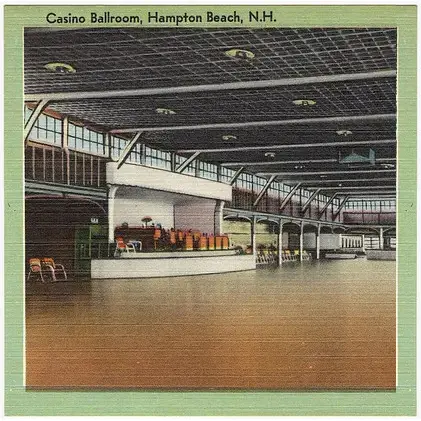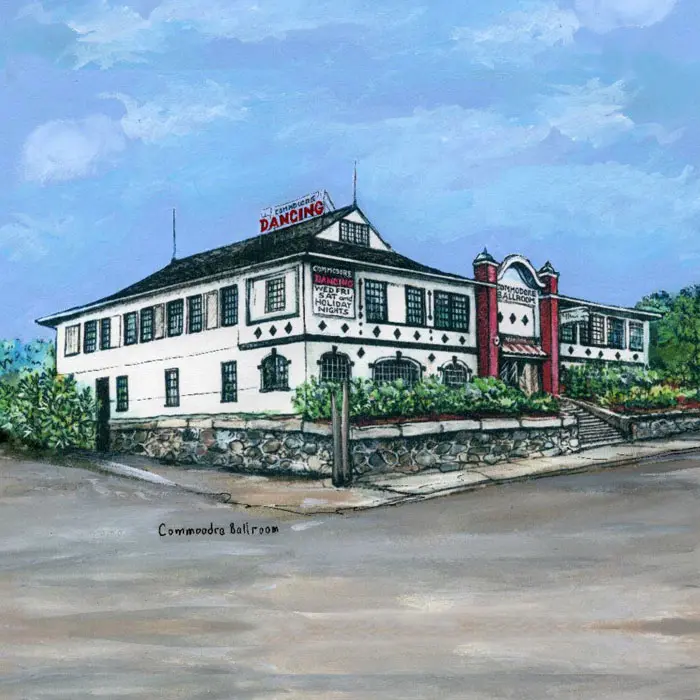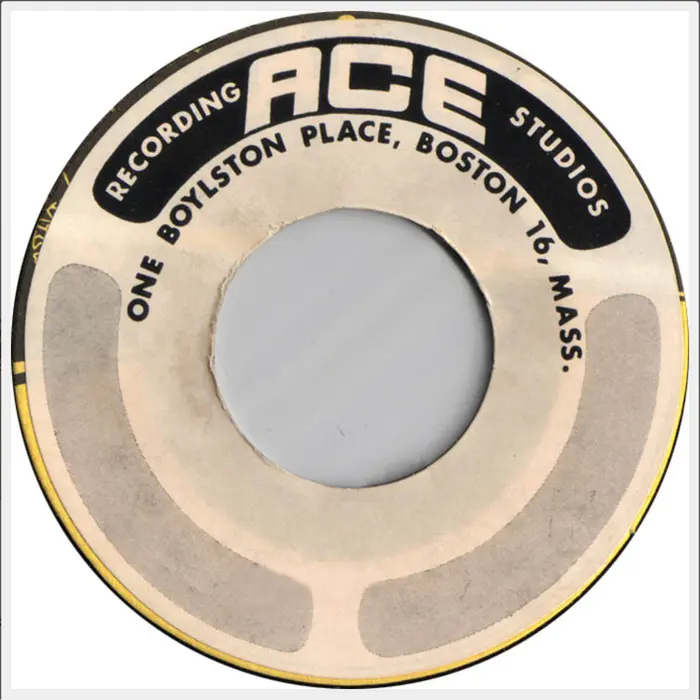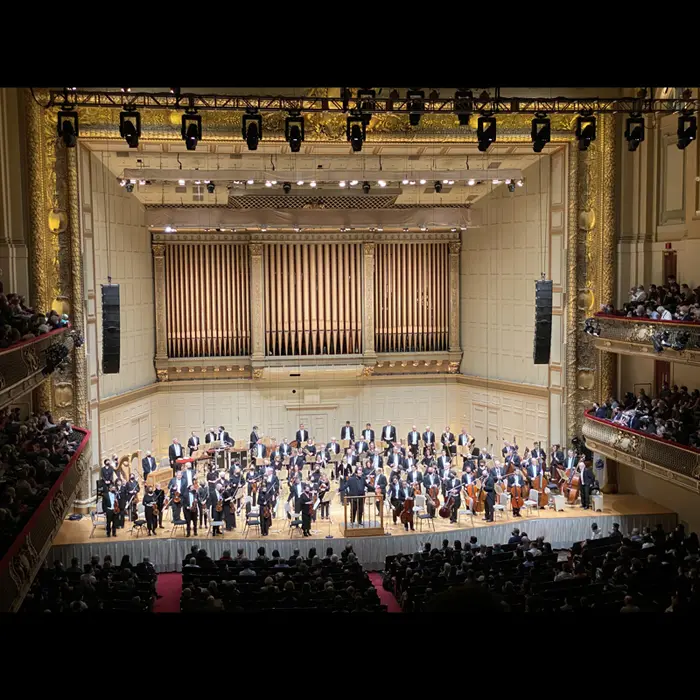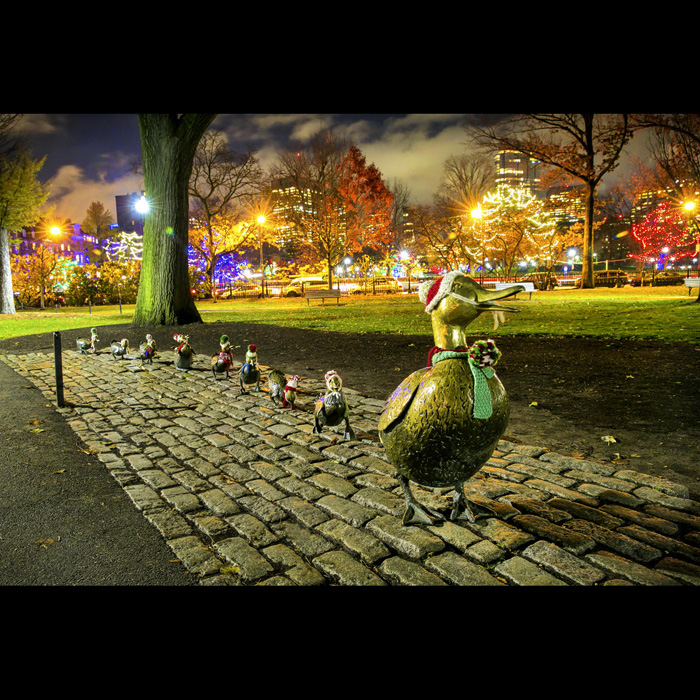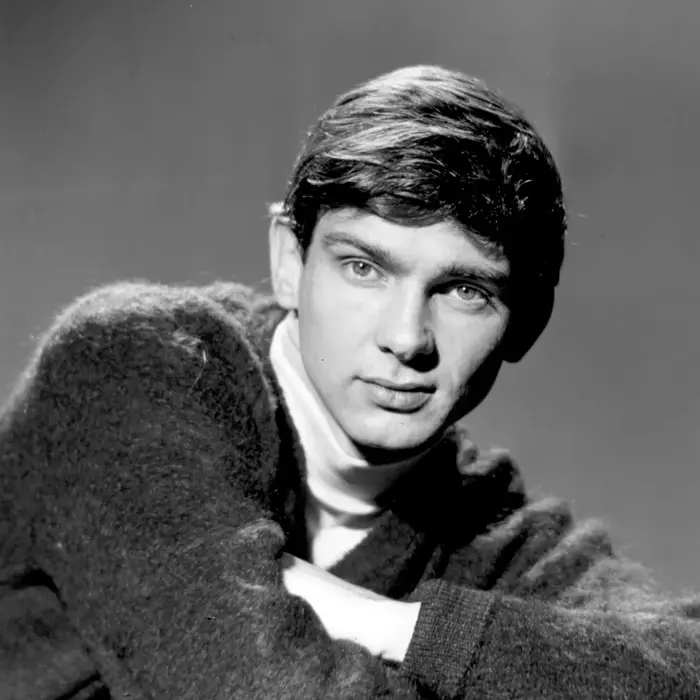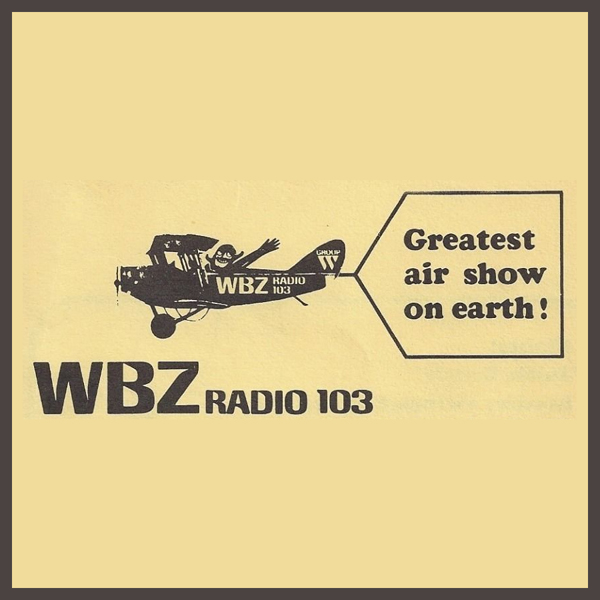Teddy & The Pandas
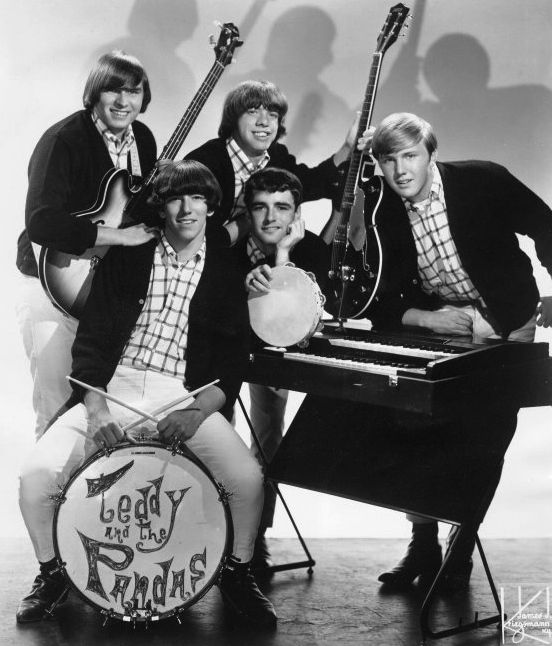
In the pre-British Invasion early ‘60s, New England was on Old England’s rock ‘n’ roll map thanks to Freddy Cannon, whose debut album, The Explosive Freddy Cannon, was the first LP categorized as “rock ‘n’ roll” to hit #1 in the UK charts (in April 1960, three years before The Beatles’ debut disc, Please Please Me, reached that prized position in March 1963). And garage bands across the six-state region, initially inspired by Elvis Presley’s appearances on Stage Show and The Ed Sullivan Show in 1956, were more driven than ever after watching a 19-year old from Massachusetts – born in Revere, raised in Lynn – turn his rock ‘n’ roll fantasy into reality.
Among the gaggle of groups hell-bent on being New England’s next riff-rippin’ export was The Sensations, formed in Beverly, Massachusetts, in early 1963, about a year before the Fab Four first appeared on The Ed Sullivan Show. After renaming themselves Teddy & The Pandas, they were one of the hottest acts in the region for some four years, until psychedelic rock transformed the national rock landscape and The Bosstown Sound briefly commandeered the local one.
Like their Boston-based contemporaries The Rockin’ Ramrods, The Remains and The Lost, Teddy & The Pandas never broke through on a national level – which some attribute to changes in the public’s musical tastes and others say resulted from misguided management decisions – but this much is clear: Their lack of sweeping popularity and chart success wasn’t the result of laziness. One of the hardest working, most commercially savvy young groups anywhere in the Northeast in their heyday, the band was an indefatigable melody-making machine that helped establish Boston’s reputation as a rock ‘n’ roll hothouse.
FORMATION, NAME
The Sensations were the teenage septet of vocalist Al Lawrence, guitarists Joe Daley and William “Teddy” Dewart, keyboardist Dick Guerette, saxophonist Dick Winters, bassist Billy Corelle and drummer Ralph Cooper. Winters left the band at the end of 1963 and the sextet renamed themselves Teddy & The Pandas shortly thereafter, when they learned that another local band was calling themselves The Sensations. Drummer Jerry LaBrecque replaced Cooper in early 1964.
Dewart, the band’s de facto leader, has credited Cooper with coming up with the group’s rather adorable moniker. “We had all decided to look through the dictionary to find words that might work as a group name, but I believe he was the only one that really did the work on that exercise,” he told Spectro Pop’s Mike Dugo in 2005. “Because I was emerging as the leader of this new group, someone suggested using the obvious connection of my first name, Teddy, with the concept of pandas – i.e., bears – resulting in the name Teddy & The Pandas.”
EARLY PERFORMANCES
Unlike most of their contemporaries, Teddy & The Pandas took a thoroughly business-minded approach to their endeavor. In mid-1964, after becoming a teen favorite by playing dances, mixers and other small gigs in North Shore communities including Beverly, Salem, Danvers and Gloucester, the group formed their own corporation and hired a lawyer, an accountant, a public-relations consultant and a four-man road crew. When other bands started to incorporate dance moves into their sets, they brought in a choreographer to train them in the latest steps and synchronized routines.
From the outset, even as they covered all the top-40 hits of the day, they were set on writing original material and testing it on live audiences. “We decided to go into the club scene with the explicit goal of learning how to be an extremely tight band, moving, literally, non-stop for four or five 45-minute shows a night,” Dewart told Spectro Pop’s Dugo. The group’s first show outside of the suburbs was at The Intermission Lounge in Boston’s notorious Combat Zone.
By early 1965, the band was gigging seven nights a week and had taken on Joe Saia as full-time manager. On the suggestion of Dewart’s brother, a student at Middlebury College in Vermont, they recruited students at colleges and universities across New England as agents, offering 10% of the gross for each show they booked. “Most of my boarding school senior class went on to college, many right in New England, so I had an automatic ‘in’ with most,” Deward told Dugo. Teddy & The Pandas appeared at schools including Middlebury, the University of Vermont, the University of Massachusetts, Holy Cross, Clark, Boston College and Cornell and at noteworthy New England venues such as the Hampton Beach Casino Ballroom and the Commodore Ballroom.
“Teddy & The Pandas were extremely tight and talented. They never stopped playing,“ wrote Dennis A. Blackledge in his book We Gotta Go Now (Windholme Press, 2000). “They were inexhaustible, they had stamina, and they had staying power. Once they got the crowd on the dance floor, they were relentless. Panda sets were non-stop parties.”
“ONCE UPON A TIME”
In early 1966, the group cut their first single, “Once Upon a Time” b/w “(Bye Bye) Out the Window,” at Ace Recording Studios in Boston; produced by Mutual Record Distributors promo man Bruce Patch, it was issued by Coristine Records. Keyboardist Guerrette made a snap decision to play a harpsichord on “Once Upon a Time” after he found one left in the studio following a Boston Symphony Orchestra session.
The unique instrumentation helped put the tune in the top 10 on Boston’s WMEX and WBZ and a number of other New England stations, leading Musicor Records to acquire the rights to reissue it nationally. The group performed it on the ABC variety show Upbeat and on Dick Clark’s Where The Action Is – the theme song for which was one of Freddy Cannon’s hits, “Action” – and gigged as far west as Ohio and as far south as Georgia. Despite that burst of national exposure, however, “Once Upon a Time” didn’t crack the Billboard Hot 100, stalling at #134.
Dewart is credited as the songwriter but says he wrote it with help from his youngest sister, Judy. “I must have been 18 years old at the time, which meant Judy would have been 12,” he told Spectro Pop’s Dugo. “We were sitting on the piano stool, me focused on putting the chords together and writing lyrics down as she swung her legs in joy, poking in little ideas or lambasting me for using a chord she didn’t like.”
GENE PITNEY INTEREST, MANAGEMENT CHANGE, DALEY’S DEPARTURE
Prior to Teddy & The Pandas recording “Once Upon a Time,” Connecticut native and pop megastar Gene Pitney called Dewart to ask if he could record it first – and Dewart said ‘no’. Pitney had heard a recording of the song from Musicor’s Don Costa, one of his producers and arrangers. “[Pitney’s] pitch was that I could make much more money with him singing my song and that I was being absolutely ridiculous [by refusing],” Dewart said. “He was certainly correct – and I knew that. It was just that this song was our first really lucky break and I wasn’t going to sell it to anybody else. He was obviously frustrated and angry with me, but I guess that’s when I first knew the power of a simple song.”
After Coristine issued Teddy & The Pandas’ rendition, Pitney included both “Once Upon A Time” and “(Bye Bye) Out The Window” on his 1966 album The Gene Pitney Show; Teddy & The Pandas were his opening acts for a six-week tour in the fall that year. Other acts they supported were Paul Revere and The Raiders, The Lovin’ Spoonful, The Dave Clark Five and The Beach Boys.
Following the Ace sessions, Patch replaced Saia as the Pandas’ manager, which resulted in guitarist Daley being exited from the group because Patch insisted there be only one guitarist. The band members agreed with the decision at the time but have since had second thoughts. “I think that this ‘cutthroat’ element led to some mistrust [of Patch] that reemerged many years later,” Dewart told Spectro Pop’s Dugo.
“WE CAN’T GO ON THIS WAY,” “SEARCHING FOR THE GOOD TIMES”
In the summer of 1966, with their profile at an all-time high, the band cut two more singles for Musicor, again with Patch producing. The first, “We Can’t Go On This Way” b/w “Smoky Fire,” was written by Bob Stone (who wrote Cher’s 1971 hit “Gypsies, Tramps and Thieves”), featured session guitarist Hugh McCracken and vocalist Toni Wine (the female voice on The Archie’s 1969 chart topper “Sugar Sugar”) and received strong airplay in New England but failed to make the Billboard Hot 100.
The second, “Searchin’ for the Good Times” b/w “Sunnyside Up,” had backup vocals by The Tokens (known for their 1961 #1 hit “The Lion Sleeps Tonight”) but saw relatively limited airplay, even in New England, when it was released in December 1966. Since neither single was nationally successful, Musicor lost all interest in the Pandas but Patch released a fourth single, “The Lovelight” b/w “Day in the City,” on his own label, Timbri. While the group liked how the song turned out, it didn’t chart, even regionally.
DEWART’S DEPARTURE, CAPITOL SIGNING, BASIC MAGNETISM
In mid-1967, Dewart left the band to go to college, replaced by guitarist Paul Rivers. Attracted by the Bosstown Sound promotional campaign originated by producer Alan Lorber, label reps were coming to Boston in droves looking for new groups at the time, which resulted in Teddy & The Pandas signing with Capitol. The result was their only LP, Basic Magnetism, a 10-track disc produced by Patch and issued on Capitol sublabel Tower in 1968. Only three songs were written by the Pandas or by Dewart who – despite not being an official band member during the sessions – played guitar and sang backup on several tracks and was credited as a guest artist.
DISBANDING, POST-PANDAS ACTIVITY, REUNIONS, COLLECTIONS
The album’s abysmal commercial performance sounded the proverbial death knell for Teddy & The Pandas and by early 1969 the band was finished. Corelle, Rivers and former Sensations Dick Winters and Ralph Cooper went on to form the blues-jazz-rock quartet Doctor Feelgood (not to be confused with English pub rockers Dr. Feelgood) and recorded one LP, Something To Take Up Time (Barnyard Records, 1971). Lawrence cut several solo singles, LaBrecque and Dewart became engineers at a Maynard, Massachusetts, studio and Guerrette left the music business to become a hair stylist.
Teddy & The Pandas reunited several times for one-off shows, the first being in October 1983 in Danvers. In 2002, a collection of demos and alternate versions they recorded in the mid-‘60s was released, Rarities and Forgotten Gems, and in 2018 “Once Upon a Time” and “(Bye Bye) Out the Window” appeared on the Past & Present Records compilation Mindrocker: The Complete Series, Vols. 1-13.
DEWART’S REFLECTIONS
Asked how he views his years with The Pandas in retrospect, Dewart said being part of the group was one of the most memorable and rewarding periods of his life. “We dreamed together, we practiced together, we worked and we sweated together,” he told Spectro Pop’s Dugo. “Our dependency upon each other was absolute. I never loved, or trusted, a group of men so much in my life, and certainly never again experienced the level of creative enterprise that I came to enjoy with the remarkable group that we called Teddy & The Pandas.”
(by D.S. Monahan)

